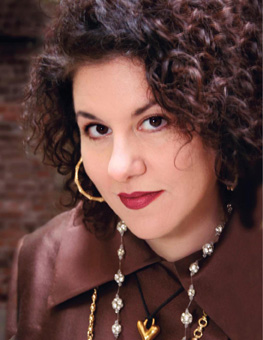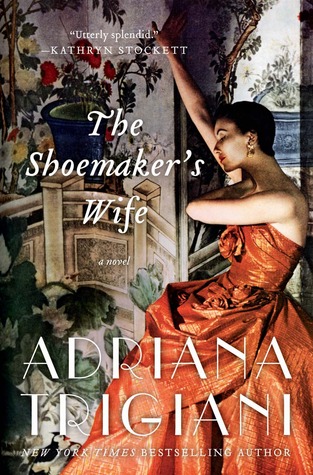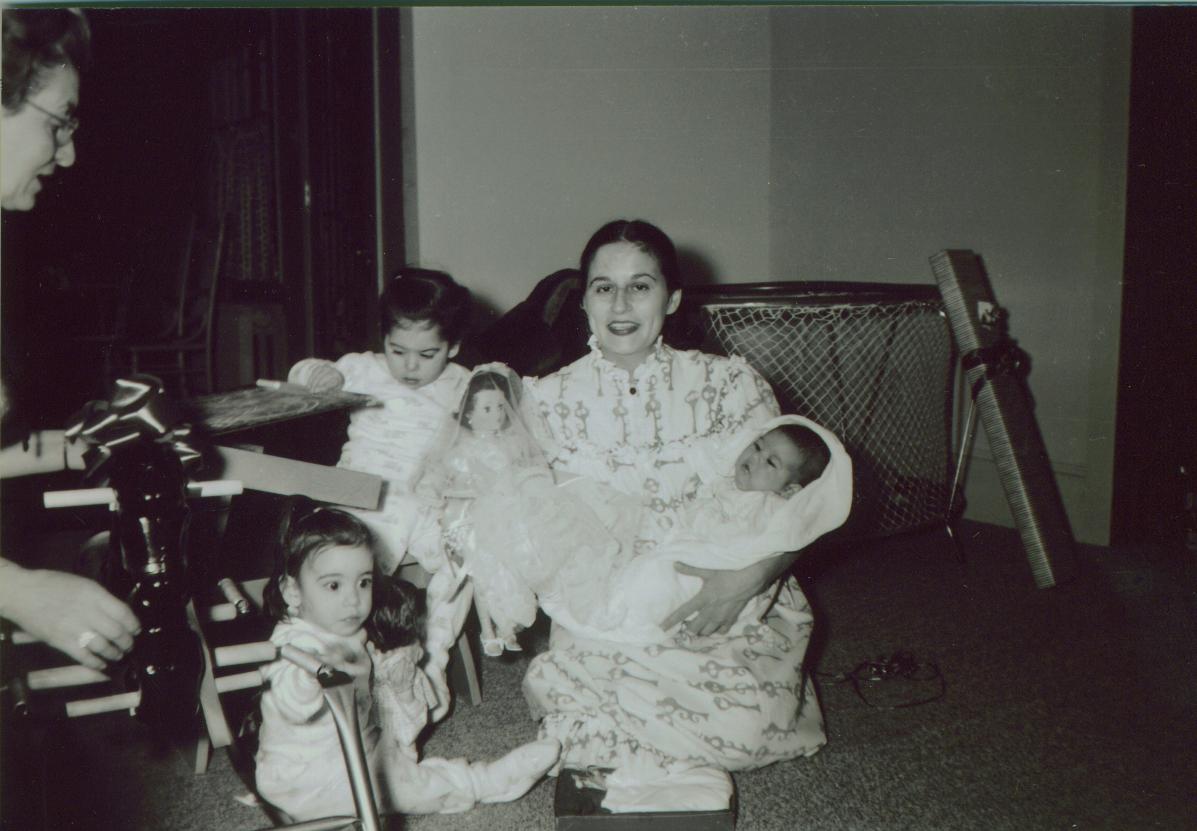 Adriana Trigiani grew up in Big Stone Gap, Virginia, and now lives in New York City with her husband and daughter. In addition to being the author of BIG STONE GAP, BIG CHERRY HOLLER, MILK GLASS MOON, LUCIA, LUCIA, and most recently, THE SHOEMAKER'S WIFE, Adriana is an award-winning playwright, television writer, and documentary filmmaker. She has written the screen adaptation of her novel BIG STONE GAP, which she will also direct. In this post, she talks about her mother's passion for books and how she inspired Adriana's reading and writing throughout her life.
Adriana Trigiani grew up in Big Stone Gap, Virginia, and now lives in New York City with her husband and daughter. In addition to being the author of BIG STONE GAP, BIG CHERRY HOLLER, MILK GLASS MOON, LUCIA, LUCIA, and most recently, THE SHOEMAKER'S WIFE, Adriana is an award-winning playwright, television writer, and documentary filmmaker. She has written the screen adaptation of her novel BIG STONE GAP, which she will also direct. In this post, she talks about her mother's passion for books and how she inspired Adriana's reading and writing throughout her life.
Sometimes a mother of a future writer will approach me and ask me how they can guide their child to become the best artist the child can be. It is then, as it has been all of my life, that I turn to the most important of all my role models and mentors, my mother Ida.
On the surface, my mother and I appear to be very different from one another. She has a twin, Irma. She was raised by immigrant parents on the Iron Ore Range in Minnesota. Her brother was a basketball star. Her father died when she was only eight years old. She is beautiful (from all angles), with classic bone structure and a petite build. She is elegant, quietly emotional and thoughtful.
There are also similarities. She had a mother she revered who encouraged her to develop her intellect. I had an instant love affair with reading as did my mother. When my mother was a girl in Chisholm, Minnesota, she and her twin sister were regulars at the public library, where they participated in every program offered. My mother was just seven when she won a hardcover copy of HEIDI by Johanna Spyri because she had read the most books in the summer reading program. She learned to bind books and organize the card catalog as a helper.
My mother’s lifelong love affair with books, libraries and the serenity they provided led her to the College of Saint Catherine, where she graduated (along with her sister) with a degree in Library Science. From there, she and her sister went to the University of Notre Dame where they worked as librarians. My mother created the Architecture Library, (so humble about her contribution, we were stunned when she received an award from the University of Notre Dame for her efforts in 1999) while her sister Irma worked in the Science library.
The library was not only the place where she worked, she also met my father there. She also met Frank Lloyd Wright, who by the mid 1950's was already a legend. Every aspect of my mother's personal and professional choices happened around a check-out desk.
I remember trips to the library with her from a very early age. The Bangor Public Library in Bangor, Pennsylvania was my first library. It was a small, gingerbread style stone building with cozy alcoves and sloping eaves. When we moved to Big Stone Gap, Virginia, my mother waited with us every Saturday morning for the county bookmobile. This was the only instance when we encouraged to splurge. "Check out as many books as you want," she'd say. And we would.
When our town opened the Slemp Memorial Library, it was built around the block from where we lived. I was encouraged to spend time there, and it became my second home. I still get a kick out of pulling a book off the shelf there and seeing my name on the checkout card of an obscure book. My mother took me to the library the first time and helped me sign up for my library card. For my mother, and now for me and my daughter, a library card is the ticket to the stories, worlds and people we could only meet in books.
My mother portrayed a love of reading as the ultimate tool to build a good life. I never stood and learned how to apply lipstick at her mirror, or fussed over clothing and hair, though my mother had impeccable taste and a simple beauty routine. I remember a rare shopping trip. But I do remember her reading with an uncanny ability to focus and ignore the noise her seven children made around her. By example, she pushed me towards knowledge and the development of my intellect, towards books. She knew I would find the answers for anything I needed to know in the library, and as in all things, she was right.
 My mother Ida has been a constant source of love and support to me, not only as my parent but as a reader. I grew up in a home filled with books. You can visit my mother today and spend hours in her sitting room, where she has the walls lined with books. When we moved into the old house built in 1890, the first thing she did was gather the old books in the house and salvage, dust and display them. We were taught to revere authors and the written word, first by taking good care of the books. We were never to dog ear pages or write in them (it was a revelation to me in college when professors encouraged me to underline passages and write notes in the margins).
My mother Ida has been a constant source of love and support to me, not only as my parent but as a reader. I grew up in a home filled with books. You can visit my mother today and spend hours in her sitting room, where she has the walls lined with books. When we moved into the old house built in 1890, the first thing she did was gather the old books in the house and salvage, dust and display them. We were taught to revere authors and the written word, first by taking good care of the books. We were never to dog ear pages or write in them (it was a revelation to me in college when professors encouraged me to underline passages and write notes in the margins).
Books were a balm, a comfort and a source of knowledge, as well as the ticket to the wider world. I will never be less than grateful as a published author, because in my mother's eyes, the written word is a necessary art. Authors give voice to the emotional landscape of a culture. They are guardians of ideas and seekers of truth. They tell the stories of the life well lived and the ones that fall short. Books instruct, inspire and explain. It is because of my mother and in many ways, in honor of her, that I am a writer at all. When a reader enjoys my books, I am always tempted to say, please thank my mother. Ida Bonicelli Trigiani gave me the gift of life and the world of books. I am so proud of her.



